Once vibrant homes now abandoned, a sad testament to the destructive force of flooding.
In a bid to understand the practical implications of climate change and disaster response, students from Masinde Muliro University of Science and Technology’s (MMUST) Department of Sustainable Development and Climate Change, on Thursday 1st February 2024, went on an experiential learning field trip to Nyando constituency in Kisumu County. The trip provided the students with a practical understanding of the complexities of disaster management and flood management strategies as well as the sustainable development practices put in place. The students, under the guidance of Dr. Nicodemus Nyandiko who is the Chair of the Department (CoD)- Sustainable Development and Climate Change, also had the opportunity to witness and interact with real-word challenges and engage with the affected communities, which is integral in their academic development. 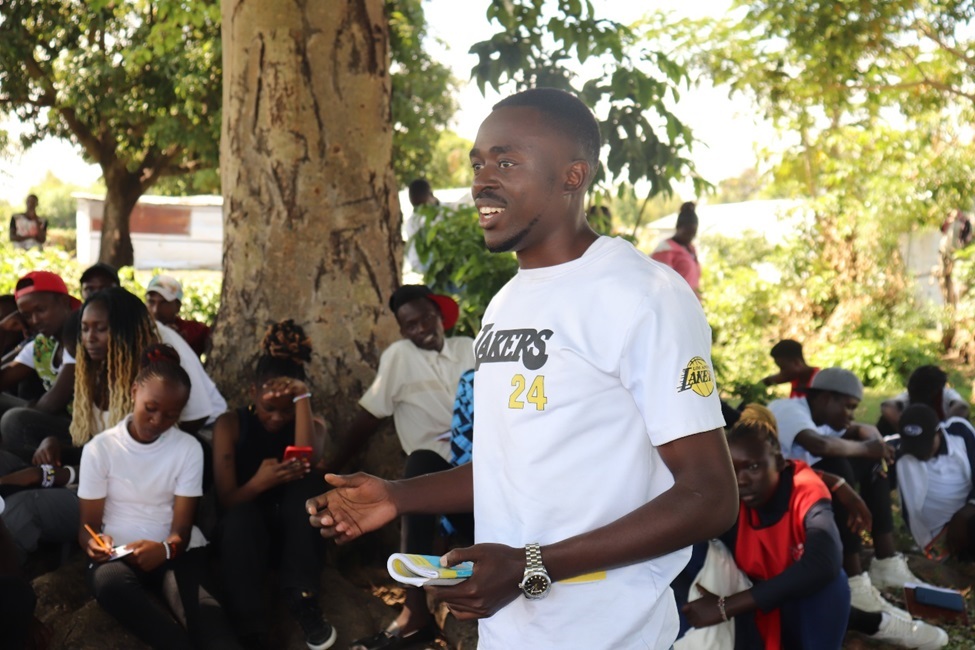
One of the students making a point during the activity.
The CoD- Dr. Nicodemus Nyandiko, commended the students for their proactive engagement in understanding the practical implications of climate change and disaster response. He emphasized the importance of experiential learning in providing students with a first-hand understanding of the complexities of disaster management and flood management strategies. Furthermore, Dr. Nyandiko underscored the role the students will play as future leaders in driving climate change adaptation and sustainable development initiatives. He encouraged them to remain committed to growth and continued engagement in addressing the pressing environmental challenges.
“Engaging in this field trip to Nyando constituency is an invaluable experience for our students as it provides them with a first-hand opportunity to witness and interact with the real-world challenges faced by communities grappling with the impacts of climate change and disasters. This hands-on experience is crucial in deepening their understanding of the complexities involved and preparing them to become effective agents of change in addressing these disaster-orientated pressing issues,” said Dr. Nyandiko.
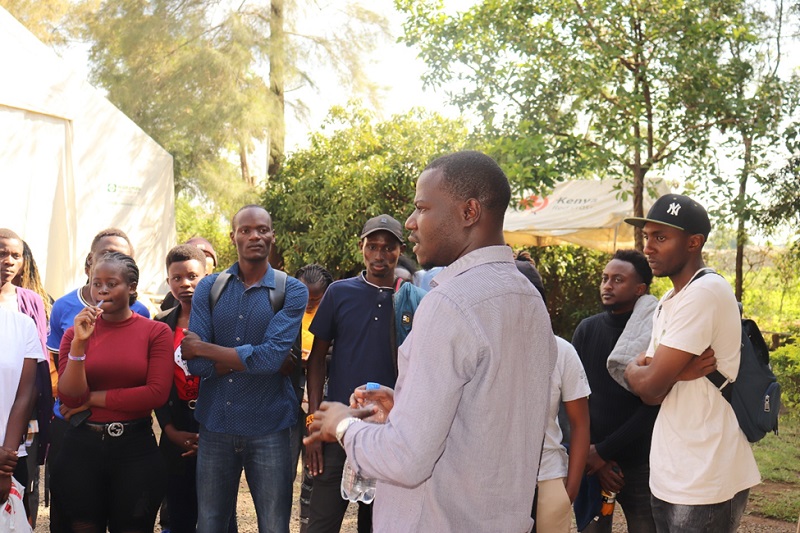
Mr. Japheth Ogenga briefing the students at the Kenya RedCross offices in Kisumu.
The Kenya Red Cross- Kisumu County Cordinator, Mr. George Opidi shared that his organization has responded with different interventions in the affected areas over the years. He encouraged the students to interact with the communities to understand disaster management plans put in place for the community, response plans, early recovery as well as interventions.
“In the face of the many challenges these communities face, the government has adopted a proactive approach to disaster response. Early warning systems have been prioritized, ensuring swift action to mitigate the impact of floods,” said Mr. Opidi.
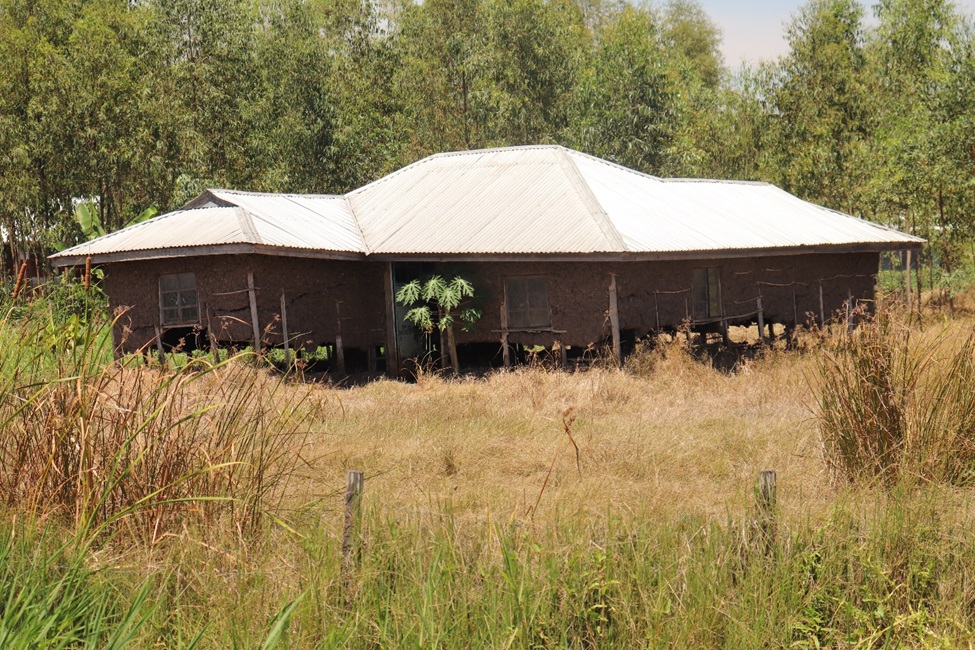
A once vibrant home now abandoned, a sad testament to the destructive force of flooding.
Welcoming MMUST and the Red Cross teams to his locality, Mr. Bonface Otieno Nyandigi, the Kanyagwal Local Area Chief, shed light on the region’s struggles. He highlighted the displacement of households, leaving over 684 families seeking refuge in camps like ‘Ogenya-Israel’, ‘Gogni’, ‘Kanduru Island’ and ‘Ogenyo Primary School’ camps. Additionally, he presented about some of the challenges affecting the communities including, acute famine; long distance to medical facilities; lack of privacy in the houses; difficulty in raising boys and girls in the small houses; increased rate of immorality and insecurity; animal-human conflict causing loss of lives; high pregnancy cases among adolescents; high rates of school drop-out; high exposures to water-borne diseases; displacement of people; and difficulty in accessing land for burying their loved ones.
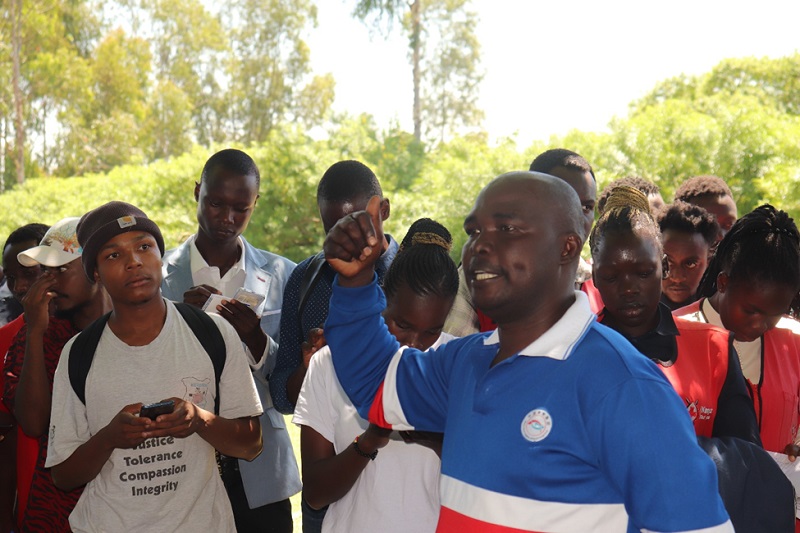
Mr. Bonface Otieno Nyandigi, the Kanyagwal Local Area Chief addressing the participants at Ogenya-Israel Camp.
However, Mr. Nyandigi noted that despite the many challenges they face, the communities have always shown resilience and stood the test of time. He thanked the Government of Kenya, the County Government of Kisumu and the Kenya Red Cross, saying that they have been very instrumental in supporting these communities.
“A total of 684 households were evicted from their homes and camped in four camps dubbed ‘Ogenya-Israel’, ‘Gogni’, ‘Kanduru Island’ and ‘Ogenyo Primary School’. This population’s livelihoods were swept by water and in the process, four villages, ‘Kanyang’i’, ‘Kajowi Wachiegwe’, ‘Kanyamouk’, and ‘Kanduru’ are completely submerged in water todate. The villages of ‘Karagwel’, K’onyango Adiel’, ‘Kanyiamo’, ‘Kachacha’, and ‘Kambata’ have recovered from the floods havoc,” he said.
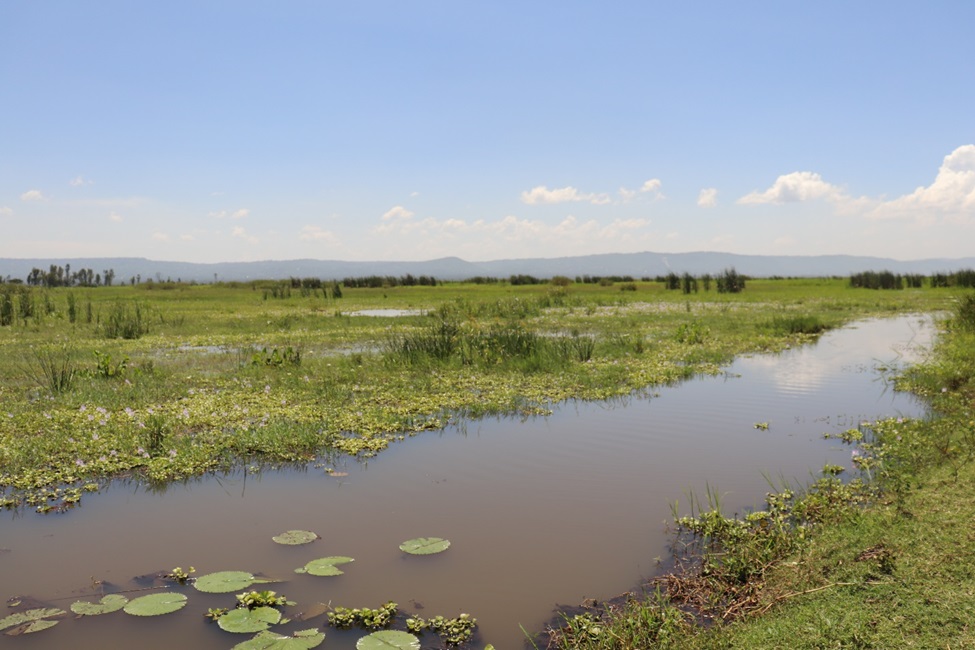
Deserted Land abandoned by its owners due to the relentless force of floodwaters.
Mr. Phanuel Akong’o Origa, the Disaster and Development Chairman of Kanyagwal Location in Kadibo Sub-County, expressed gratitude towards MMUST for their collaborative efforts in addressing the challenges faced by the community, particularly regarding floods. He acknowledged MMUST as a research institution capable of providing valuable advice to the government on measures to adopt in countering the escalating threat posed by floods.
“I encourage MMUST to partner with this community in generating solutions to these pressing issues,” stated Mr. Akong’o.
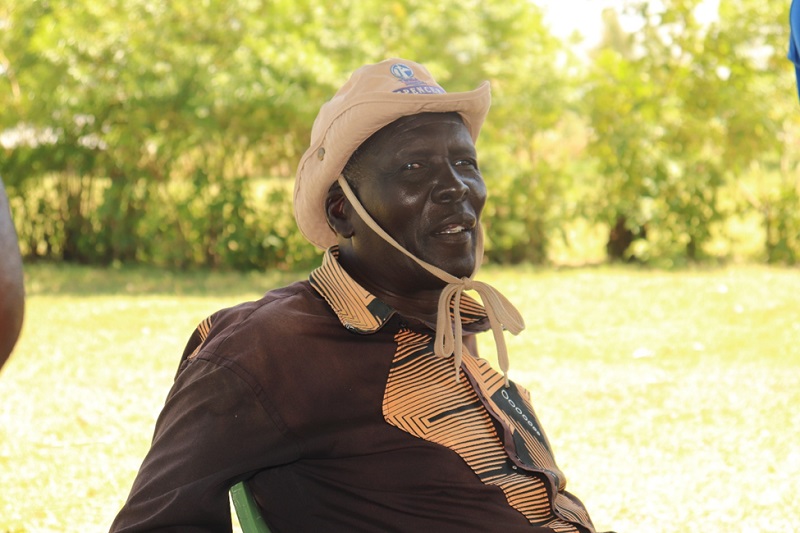
Mr. Phanuel Akong’o Origa, the Disaster and Development Chairman of Kanyagwal Location in Kadibo Sub-County, keenly following the discussions.
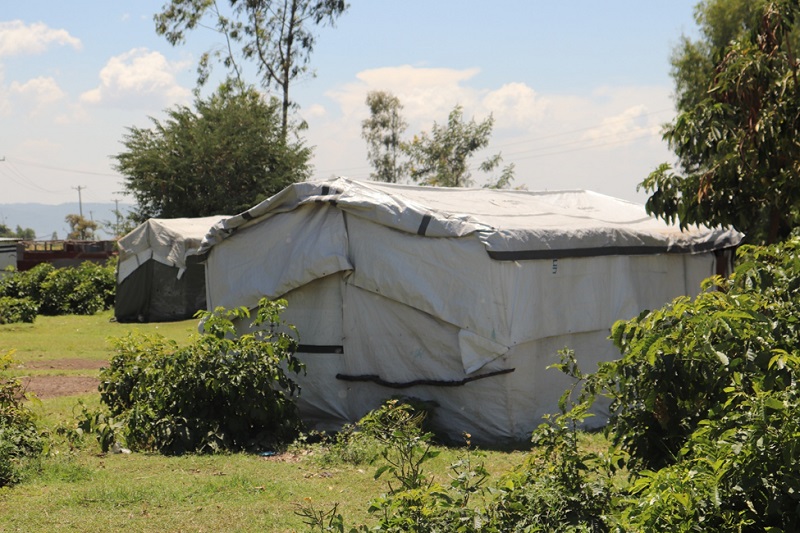
A temporary shelter providing refuge to flood-displaced residents at the ‘Ogenya-Israel’ camp.
Nyando constituency is nestled within Kisumu County, and has been grappling with recurrent flooding attributed to climate change for several years now. The flat terrain of the area, combined with climate change effects such as increased rainfall and rising lake levels, contributes to the susceptibility of Nyando to floods. The flooding often leads to displacement of residents, destruction of property, disruption of livelihoods, and other socio-economic challenges for the local population. As MMUST students return from their enlightening field trip, they carry with them a deeper understanding of climate change, disaster response, and the vital role they play in building resilient communities. With the knowledge gained from this experiential learning opportunity, we expect to see them contribute meaningfully to sustainable development and climate change adaptation efforts in Nyando constituency and beyond.
By Caren Nekesa





